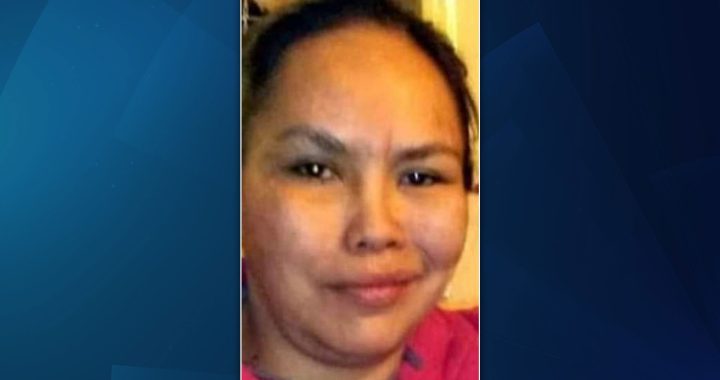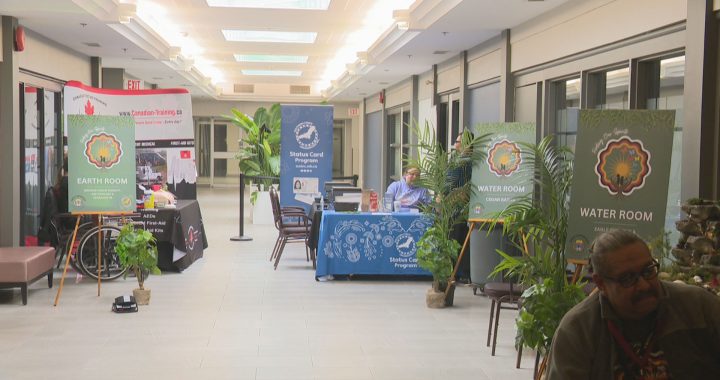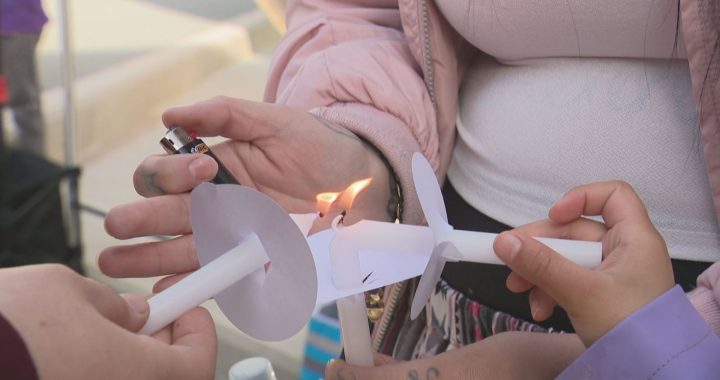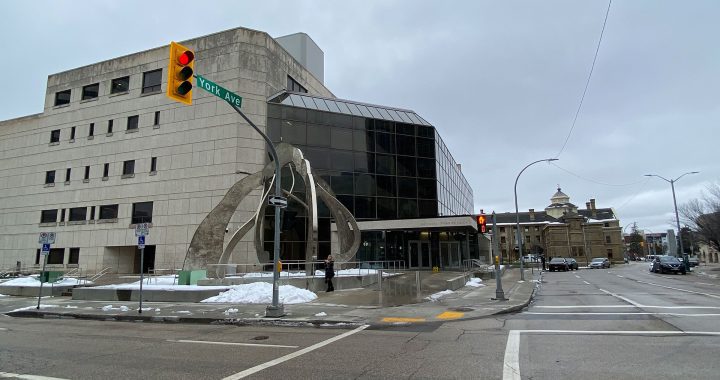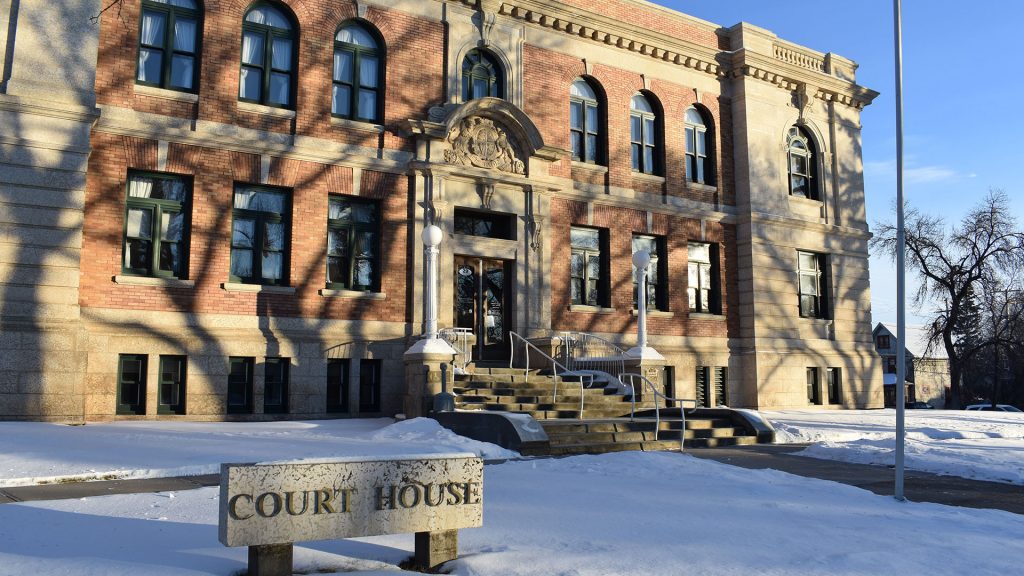
The courthouse in Yorkton, Sask., where the publication ban hearing took place. Photo: Brent McGillvray/APTN.
A Saskatchewan judge has rejected the need for a discretionary publication ban on the upcoming bail hearing of two Saulteaux sisters convicted of second-degree murder.
He also predicted the potential wrongful conviction case of Odelia and Nerissa Quewezance would be recorded “in the annals of Saskatchewan’s prominent” court cases.
Justice Donald Layh, of Court of King’s Bench in Yorkton, released a 29-page decision Tuesday denying the Crown’s request to keep the media from reporting on evidence to be revealed at the Jan. 17-18 bail hearing.
“…Seeking a publication ban might be akin to closing the barn door after the horse escaped…,” Layh wrote. “Such is the situation in this application.”
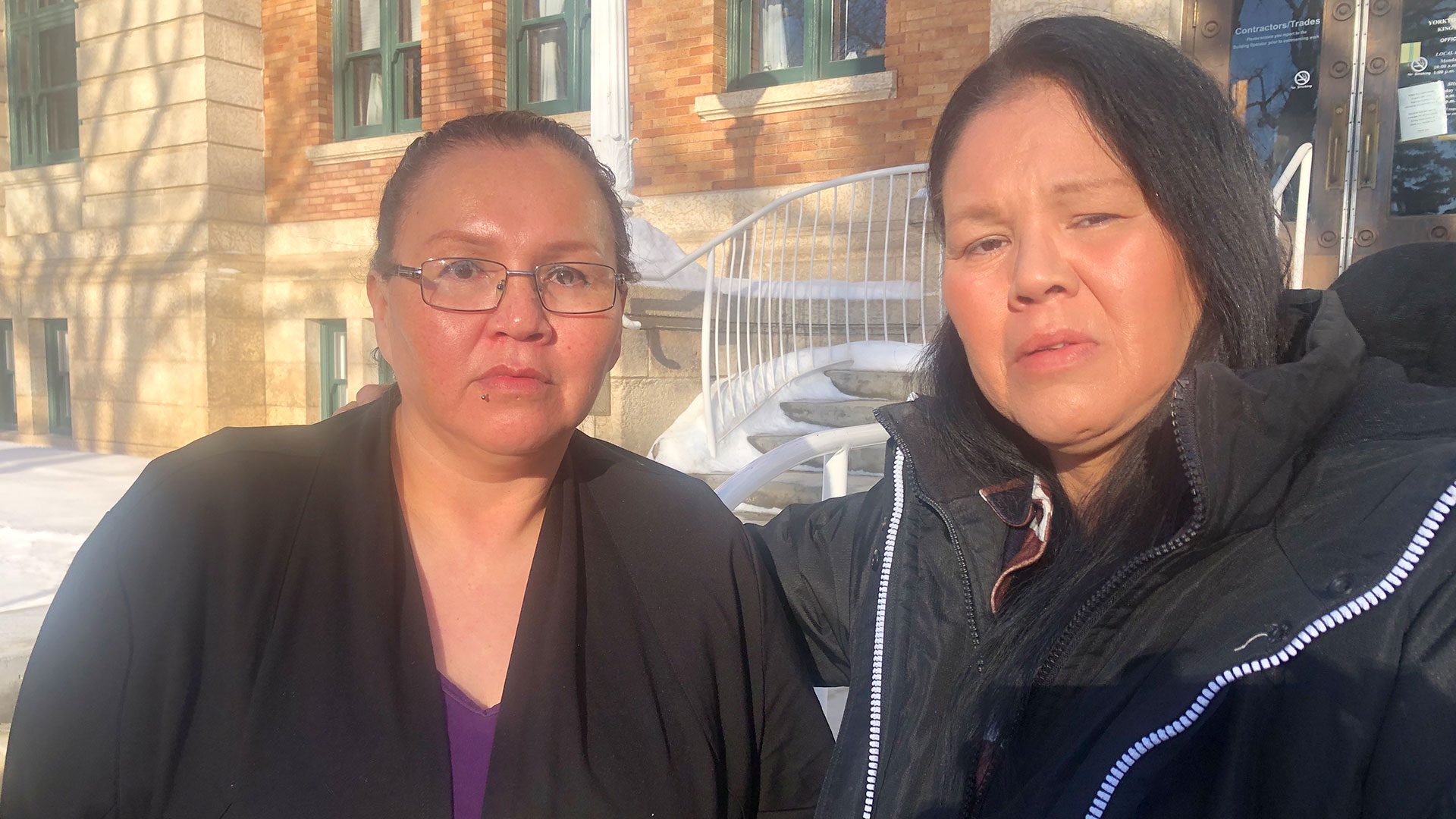
The women from Keeseekoose First Nation, 100 km northeast of Yorkton, are seeking bail while the federal justice minister reviews their 30-year-old murder convictions as a potential miscarriage of justice.
The sisters claim they are innocent of the killing of Anthony Joseph Dolff in 1994.
Dolff was found dead in his farmhouse near Keeseekoose in 1993 after a dispute with the sisters and their 15-year-old male cousin who say they were invited guests.
The cousin confessed to the crime at the sisters’ jury trial and in 2020 during the APTN Investigates’ documentary A Life Sentence. He was sentenced to five years and has already been released.
“With a parole eligibility of 10 years,” Layh wrote, “one might have expected that the Quewezance sisters would have been released as early as 2004 to live under conditions specified by the parole board. That has not happened.”
Instead, the women have served 30 years – making them among the longest-serving female inmates in Canada – and the Saskatchewan Crown is opposed to their release on bail and the federal review of their sentences, Layh heard in Yorkton court last week.
A second-degree murder conviction comes with an automatic life sentence, while the court determines parole eligibility.
Lawyers for the sisters, APTN News and CBC News opposed the publication ban.
Layh noted that the ban and a sealing order on exhibits were requested by the Crown after it learned APTN News requested copies of public court documents in the case.
He said the Crown failed to make its case the ban was necessary to protect a possible re-trial and “serious risk to the proper administration of justice.”
“…The Crown offers little evidence that publication of the interim release (bail) proceedings will raise a serious risk to the administration of justice…,” Layh wrote in his decision. “In conclusion, I find that any risk to justify a publication ban is scant and speculative.”
Read More:
There may have been a miscarriage of justice in case of Quewezance sisters, says justice minister
‘We’re survivors’: Quewezance sisters reunite at Saskatchewan courthouse
Layh also noted that a transcript of the sisters’ trial has been available and open to the public for nearly three decades.
Lastly, the judge said he agreed with James Lockyer, the senior lawyer for Innocence Canada who represents the sisters, that media coverage is important to create awareness around possible wrongful convictions.
“I accept his assertion that these cold conviction cases often rely upon media coverage to gain sufficient public prominence to drive them forward,” Layh wrote.
“Mr. Lockyer candidly states…: “The respondents have benefited from media coverage and community concern over the convictions. Without it, it is doubtful that their cases would already be as far advanced as they are.”
Layh added that public interest in the case is “both indisputable and important to the functioning of the criminal justice system.
“Indeed, few criminal proceedings will engage the public interest more than someone alleging they have been wrongfully convicted,” he wrote. “The public is entitled to know the workings of the criminal justice system, including its frailties and fallibilities.”
A spokesperson for Public Prosecutions in Saskatchewan said a response to the judge’s decision would be released Wednesday.
Lockyer, meanwhile, praised the result.
“It’s an important decision for the sisters,” he said late Tuesday. “It’s a shame that the Crown application for a publication ban means that their bail hearing won’t be heard until January.”
That hearing, originally scheduled for Nov. 24-25, was moved to January to accommodate arguments for and against the Crown’s motion for the discretionary publication ban and sealing order.






